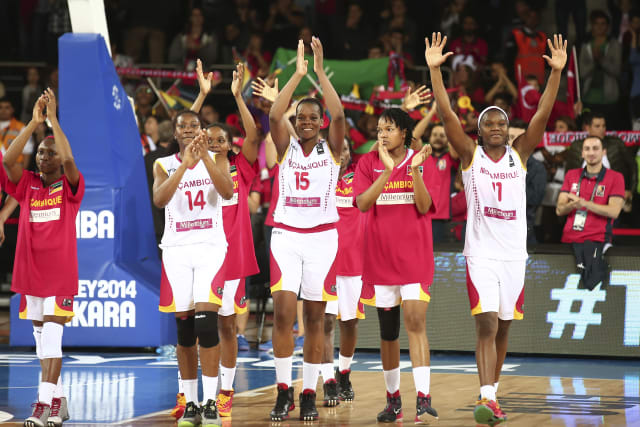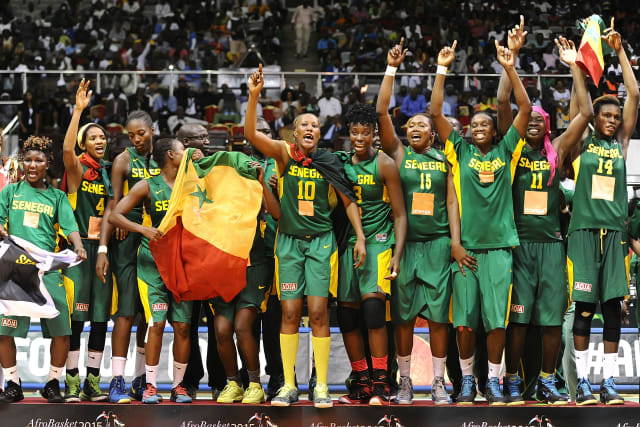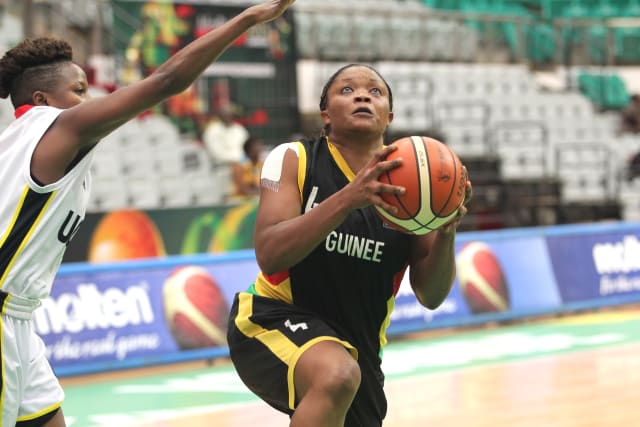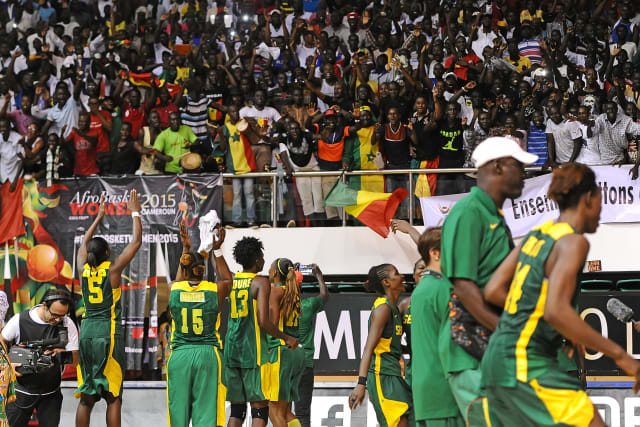Top 10 reasons to follow the FIBA Women's AfroBasket 2017
BAMAKO (FIBA Women's AfroBasket 2017) - Once every two years, the 12 best women's basketball national teams from across Africa battle it out for the right to finish on the podium
BAMAKO (FIBA Women's AfroBasket 2017) - Once every two years, the 12 best women's basketball national teams from across Africa battle it out for the right to finish on the podium at the African Championship.
From Friday, August 18-27, the Malian capital of Bamako, will take centre stage and showcase the very best of what FIBA Africa women's basketball has to offer.
Mali, Central African Republic, Angola, Cameroon, Cote d'Ivoire and Tunisia will trade blows in Group A while Guinea, Egypt, Mozambique, Nigeria, Democratic Republic of Congo and reigning champions Senegal will fight off in Group B.
Why does the FIBA Women's AfroBasket 2017 matter? FIBA.basketball offers you these top 10 reasons to follow this year's African Championship.
1. Africa's best talents coming down to Bamako
⌛️ ONLY 6⃣ DAYS until the FIBA #AfroBasketWomen2017!
— FIBA (@FIBA) August 12, 2017
Check out the players to watch out 👀
📖 https://t.co/Vo77eZvL3z pic.twitter.com/mRtHvTSWWb
The list of superstars in the Bamako showdown is almost never-ending. Here is a list of players to follow: Adaora Elonu (Nigeria), Menatalla Awad and Soraia Deghady (Egypt), Italee Lucas (Angola), Leia Dongue (Mozambique), Astou Traore (Senegal), Ramses Lonlack (Cameroon) and Naignouma Coulibaly (Mali).
2. Which two African teams will qualify for the FIBA Women's Basketball World Cup 2018?

Mozambique team as seen here during the 2014 FIBA Women's Basketball World Cup
The finalists at Bamako showdown will represent the African continent at the FIBA Women's Basketball World Cup 2018 in Spain. Four years ago, Angola and Mozambique represented the continent in Turkey. However, historically, Senegal have become the most regular African nation to compete in the World Cup competition counting four straight appearances dating back to 1998. Can they do it again?
3. Can Senegal retain the African title?

Senegal upset host Cameroon to claim the 2015 African Championship title
Both Angola and Nigeria have become the only two nations to win back-to-back African Championships. As Nigeria claimed their first-ever continental title in 2003, they were able to defend the crown two years later as hosts of the tournament. Angola followed suit six years later. The Southern Africans upset highly favorites Senegal to clinch the 2011 trophy before traveling to Mozambique two years later to deny the hosts, and as a result, qualify for their first-ever FIBA Women's Basketball World Cup in 2014.
The most asked question of the moment in African basketball circles is: can Senegal retain the title?
4. Aminata Sylla

Sylla averaged 5.6 points and 4.9 rebounds per game at the 2015 African Championship
If you are not a Guinea basketball follower, you might have never heard of Aminata Sylla. Far from being the most talented on the continent of Africa, Sylla loves playing for her country. And when Guinea comes calling, she is always ready to represent the Western Africa country.
What makes Sylla special? At the age of 43 and two FIBA Women's AfroBasket appearances under her belt, she is set to become the oldest player to ever play in the competition.
5. The WNBA experience
Dynamo Novosibirsk sign Nigerian forward Evelyn Akhator. #RBF #WNBA pic.twitter.com/RFYpccCmLH
— C.Rookie 🌿 (@CoachRookie) July 11, 2017
Congolese Mwadi Mabika is arguably the most famous African player who has ever played in the WNBA. However, take a closer look into the 12 teams rosters, and you will find players with WNBA player experience. Take Bernadette Ngoyisa as an example. The Congolese power forward has played for the San Antonio Silver Stars in 2006.
Nigerian Evelyn Akhator was drafted with the third overall pick in the 2017 WNBA draft by the Dallas Wings. Mali's Astan Dabo was drafted by the Connecticut Sun in the 2012 WNBA draft although the 6ft8in (2.03m) center has spent most of her career in Europe. Prior to joining the Nigerian national team's training camp, Elonu had signed a training camp contract with the Connecticut Sun.
6. Fans

Senegalese and Malians fans have become some of the most enthusiasts in African basketball. They sing, they dance, and more importantly, they embrace fair-play.
7. Three-point contest
If you are looking for three-point specialists, keep an eye on Mozambique. Two years ago in Cameroon, they finished with the highest average of three-points made (7.4). Now that Anabela Cossa and Rute Muianga return - after missing out the 2015 edition - joining sharp-shooter Iliana Ventura, the Mozambicans are set to pose a threat to opponents.
8. Hosts dilemma

Mozambique finished in second place as hosts of the 2013 edition of the African Championship
FIBA Women's AfroBasket hosts face an inexplicable dilemma. Not a single host nation has won the African Championship since 2005. Senegal (2007), Madagascar (2009), Mali (2011), Mozambique (2013) and Cameroon (2015) have all failed to lift the trophy at home. Can Mali revert this tendency?
9. Can the DR Congo make some noise?
@LeopardsBasket here to roar loud!#AfroBasketWomen2017 @FIBA @FIBA_fr #Bamako 🇨🇩🐆⛹🏾♀️ pic.twitter.com/Fvcz7Zchzz
— DR Congo Basketball (@LeopardsBasket) August 17, 2017
It's been six years since the Democratic Republic of Congo last appeared in the tournament. As the second most successful African with three titles - after Senegal - the question is: can they win it again?
10. Is this Egypt's turn?
#Egypt down Angola in #AfroBasket Women 2015 - http://t.co/4Z9WzPMuJC
— KingFut.com (@King_Fut) September 29, 2015
By @welo97 pic.twitter.com/J5A7av6YPi
This is Egypt's third straight appearance in the competition. While the North Africans have become a dominant force at youth level, the senior team is yet to reach the last four. However, with a team that includes some of the most talented players in Africa, and following their encouraging win over Angola two years ago, they have earned respect from their opponents.
FIBA